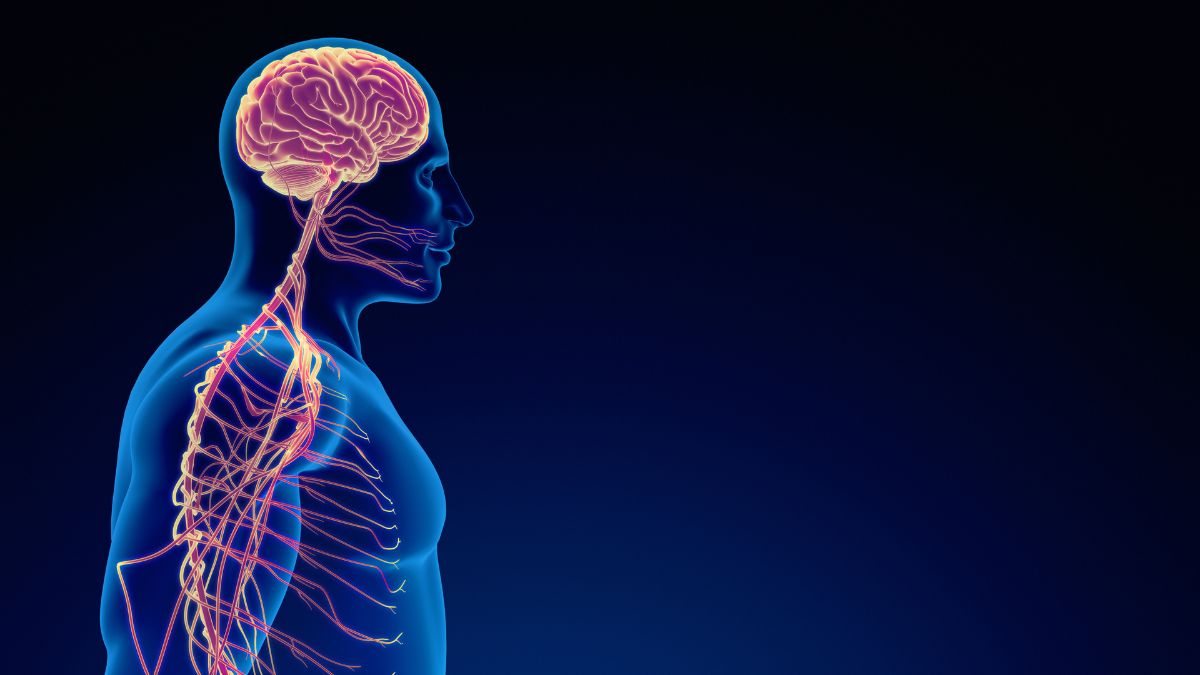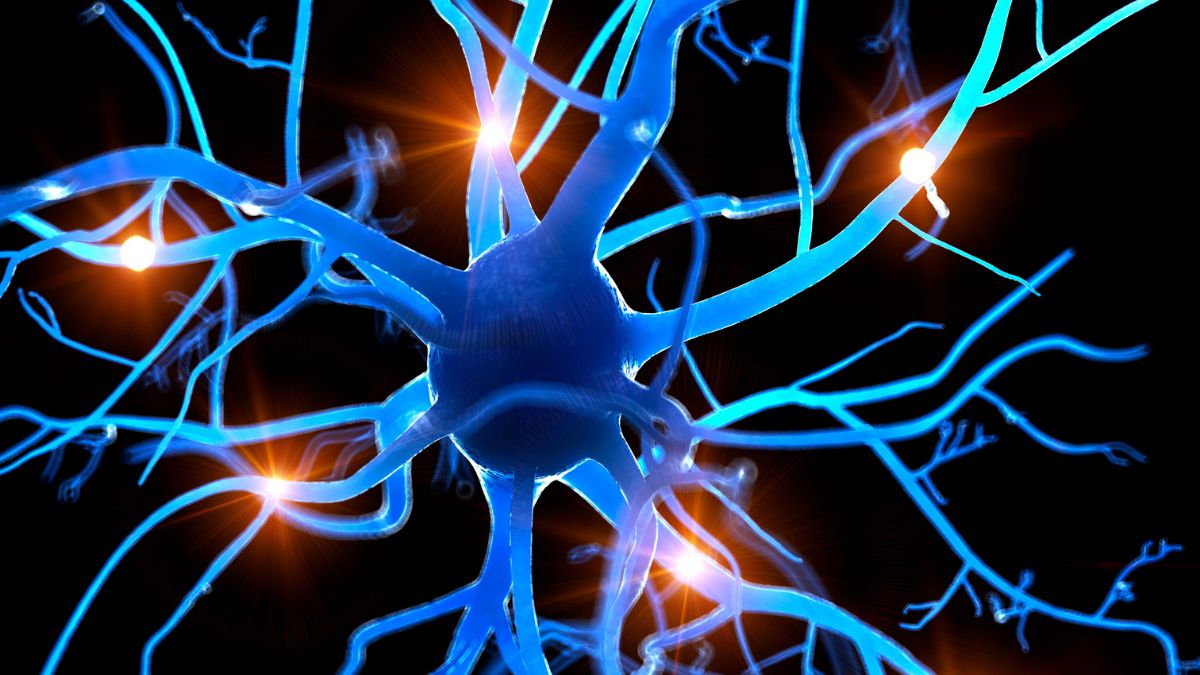
Acupuncture has been practiced for thousands of years, with roots in Traditional Chinese Medicine (TCM), yet only recently has modern science begun to fully understand how it impacts the body—especially the nervous system. If you’ve ever wondered why so many people turn to acupuncture to reduce stress, relieve pain, and regain balance, the answer lies in how this ancient practice directly influences your brain and nerves.
Understanding the Nervous System
To grasp how acupuncture interacts with your nervous system, it helps to understand what the nervous system does.
The human nervous system is a highly complex network that sends signals between the brain, spinal cord, and every other part of the body. It regulates essential bodily functions such as heart rate, digestion, breathing, sleep, immune response, mood, and pain perception. There are two main branches:
- Central Nervous System (CNS) – composed of the brain and spinal cord.
- Peripheral Nervous System (PNS) – includes all the nerves that branch out from the spinal cord to the rest of the body.
Within the PNS is the autonomic nervous system, which governs involuntary functions. This is further divided into:
- Sympathetic Nervous System (SNS) – the “fight or flight” system.
- Parasympathetic Nervous System (PNS) – the “rest and digest” system.
Chronic stress, pain, and trauma can cause an overactive sympathetic response, which leads to inflammation, hormonal imbalance, poor digestion, insomnia, anxiety, and more.
This is where acupuncture steps in.
How Acupuncture Stimulates the Nervous System
Acupuncture involves the insertion of ultra-thin, sterile needles into specific points on the body called acupoints. These points are located along energy pathways, or meridians, that correlate with organ systems and bodily functions. When these points are stimulated, several things happen:
1. Activation of Sensory Nerves
When a needle is inserted into an acupoint, it stimulates afferent sensory nerves that transmit signals to the spinal cord and brain. This initiates a cascade of responses, including the release of neurotransmitters and hormones that regulate pain, mood, and immune function.
2. Release of Endorphins and Neurotransmitters
Acupuncture prompts the brain to release endorphins, serotonin, dopamine, and other natural chemicals that influence mood, energy, and pain perception. Endorphins are the body’s natural painkillers and help create a sense of well-being.
3. Regulation of the Autonomic Nervous System
Acupuncture has been shown to downregulate the sympathetic nervous system (fight or flight) and stimulate the parasympathetic nervous system (rest and digest). This promotes relaxation, lowers heart rate, reduces cortisol levels, and improves digestion and sleep.
4. Improved Neural Communication
Research shows that acupuncture enhances communication between the brain and body. Functional MRI scans have revealed changes in brain activity during acupuncture, especially in areas related to emotion regulation, pain perception, and cognitive processing.
5. Reduction in Inflammatory Markers
Acupuncture can reduce pro-inflammatory cytokines in the nervous system, which helps manage conditions like neuropathy, arthritis, and autoimmune disorders.

Conditions Related to the Nervous System That Acupuncture Can Help
Acupuncture’s ability to influence the nervous system makes it especially beneficial for treating a variety of conditions, both physical and psychological. Some of the most common include:
1. Chronic Pain
Acupuncture is highly effective in managing chronic pain conditions, including:
- Sciatica
- Neck and back pain
- Migraines and headaches
- Arthritis
- Fibromyalgia
- Carpal tunnel syndrome
Through its action on the nervous system, acupuncture reduces inflammation, blocks pain signals, and enhances endorphin release.
2. Anxiety and Depression
By regulating neurotransmitters such as serotonin and GABA, acupuncture can help reduce anxiety and improve mood. It also helps calm the overactive sympathetic nervous system, making it a safe and natural treatment for emotional imbalance.
3. Sleep Disorders
Insomnia often stems from nervous system dysregulation. Acupuncture promotes relaxation, balances cortisol and melatonin levels, and improves overall sleep quality by enhancing parasympathetic nervous system activity.
4. Neuropathy
Nerve pain or damage from diabetes, chemotherapy, or injury can be extremely difficult to treat. Acupuncture stimulates circulation and nerve regeneration, reduces pain, and enhances sensation in affected areas.
5. Post-Stroke Recovery
Post-stroke patients benefit from acupuncture through improved motor function, decreased spasticity, and better circulation to affected regions of the brain and limbs.
6. Digestive Disorders
The nervous system directly affects gut function. Acupuncture can help regulate the vagus nerve, which controls digestion, and alleviate conditions like IBS, constipation, nausea, and acid reflux.
7. Tinnitus and Vertigo
These conditions are often linked to inner ear and nerve function. Acupuncture can help regulate inner ear circulation and balance signals in the nervous system.
Acupuncture for Nervous System Balance in Everyday Life
Even if you don’t suffer from a neurological disorder, your nervous system likely takes a beating from modern life—chronic stress, screen time, poor posture, and poor sleep all contribute to dysregulation.
Here’s how regular acupuncture sessions help keep your nervous system resilient:
- Better Adaptation to Stress
Acupuncture reduces cortisol levels and boosts resilience to emotional and environmental stressors.
- More Restful Sleep
With less nervous system overactivity, patients often report deeper, more consistent sleep.
- Sharper Mental Focus
By regulating neurotransmitters and increasing oxygen flow to the brain, acupuncture enhances clarity and cognitive function.
- Pain Prevention and Recovery
Athletes and active individuals use acupuncture to speed up recovery, prevent injury, and stay in optimal condition.
- Gut-Brain Connection Support
With growing awareness of the gut-brain axis, acupuncture proves valuable in treating stress-induced gastrointestinal issues.
What Happens During a Nervous System-Focused Acupuncture Session?
At Best Acupuncture OC, each treatment is personalized. For nervous system support, your acupuncturist may focus on specific points that influence:
- The vagus nerve, which controls relaxation and digestion.
- Points along the Governing Vessel and Bladder meridians, which are closely associated with the central nervous system.
- The ear (auricular acupuncture), which contains microsystems that correspond to various body systems.
Patients typically report feeling a sense of calm, warmth, or slight tingling sensations during treatment. Afterward, many experience relaxation, improved mood, or even better sleep that same night.
Why Choose Best Acupuncture OC?
At Best Acupuncture OC, we specialize in using acupuncture to support nervous system health—whether you’re seeking relief from chronic pain, emotional stress, sleep issues, or simply want to restore balance to your body and mind.
Our team of licensed and experienced practitioners uses a gentle, integrative approach tailored to your unique needs. We take time to understand your symptoms, evaluate your nervous system health, and develop a customized treatment plan designed to promote long-term healing.
Take the First Step Toward a Balanced Nervous System
If you’re ready to feel calmer, think more clearly, and live with less pain, acupuncture may be the solution your nervous system has been waiting for.
Schedule your consultation with Best Acupuncture OC or call us at (949) 867-0150. Let us help you restore balance, one needle at a time.
Medical note: This article is for educational purposes and isn’t a substitute for personalized medical advice. Always consult your healthcare professional for guidance about your specific condition, medications, and treatment options.

